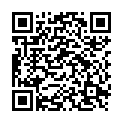|
|
|
| Module code: E306 |
|
2V (2 hours per week) |
|
2 |
| Semester: 3 |
| Mandatory course: yes |
Language of instruction:
English |
Assessment:
Examination, 120 min
[updated 10.03.2010]
|
E306 Electrical Engineering, Bachelor, ASPO 01.10.2005
, semester 3, mandatory course
|
30 class hours (= 22.5 clock hours) over a 15-week period.
The total student study time is 60 hours (equivalent to 2 ECTS credits).
There are therefore 37.5 hours available for class preparation and follow-up work and exam preparation.
|
Recommended prerequisites (modules):
None.
|
Recommended as prerequisite for:
|
Module coordinator:
Prof. Dr. Christine Sick |
Lecturer:
Marina Hefti, M.A.
[updated 10.03.2010]
|
Learning outcomes:
Despite the heterogeneity of the student intake with respect to language proficiency, this course aims to teach students aspects of English that will be of relevance in their later careers. Initial emphasis is placed on repeating and extending existing knowledge. The students then practice job-specific situations such as telephoning, reaching agreements, making arrangements and other general communicative skills. The course gives priority to improving oral expression and listening comprehension while at the same time introducing the specialist technical and business vocabulary required by engineers. Before taking this course, students should have acquired an English language proficiency equivalent to Level B1 (Threshold) of the Common European Framework, corresponding to the language skills of those who have attained a German intermediate school leaving certificate (mittlerer Bildungsabschluss / Realschulabschluss).
[updated 10.03.2010]
|
Module content:
I. Communicating in English: Socializing and telephoning
- Introducing yourself and others
- Talking about yourself (personal and career history: education, vocational
training, higher education, etc.)
- ‘small talk’
- Communicating by phone: Making appointments, travel planning and travel
information
II. Grammar and vocabulary work
- Repetition of basic grammar structures
- Basic vocabulary
III. Introduction to multimedia learning software
[updated 10.03.2010]
|
Teaching methods/Media:
Teaching and study materials compiled for specific target groups (print media, visual aids, audio, video, software)
[updated 10.03.2010]
|
Recommended or required reading:
A list of recommended texts will be issued covering the three compulsory semesters.
[updated 10.03.2010]
|


